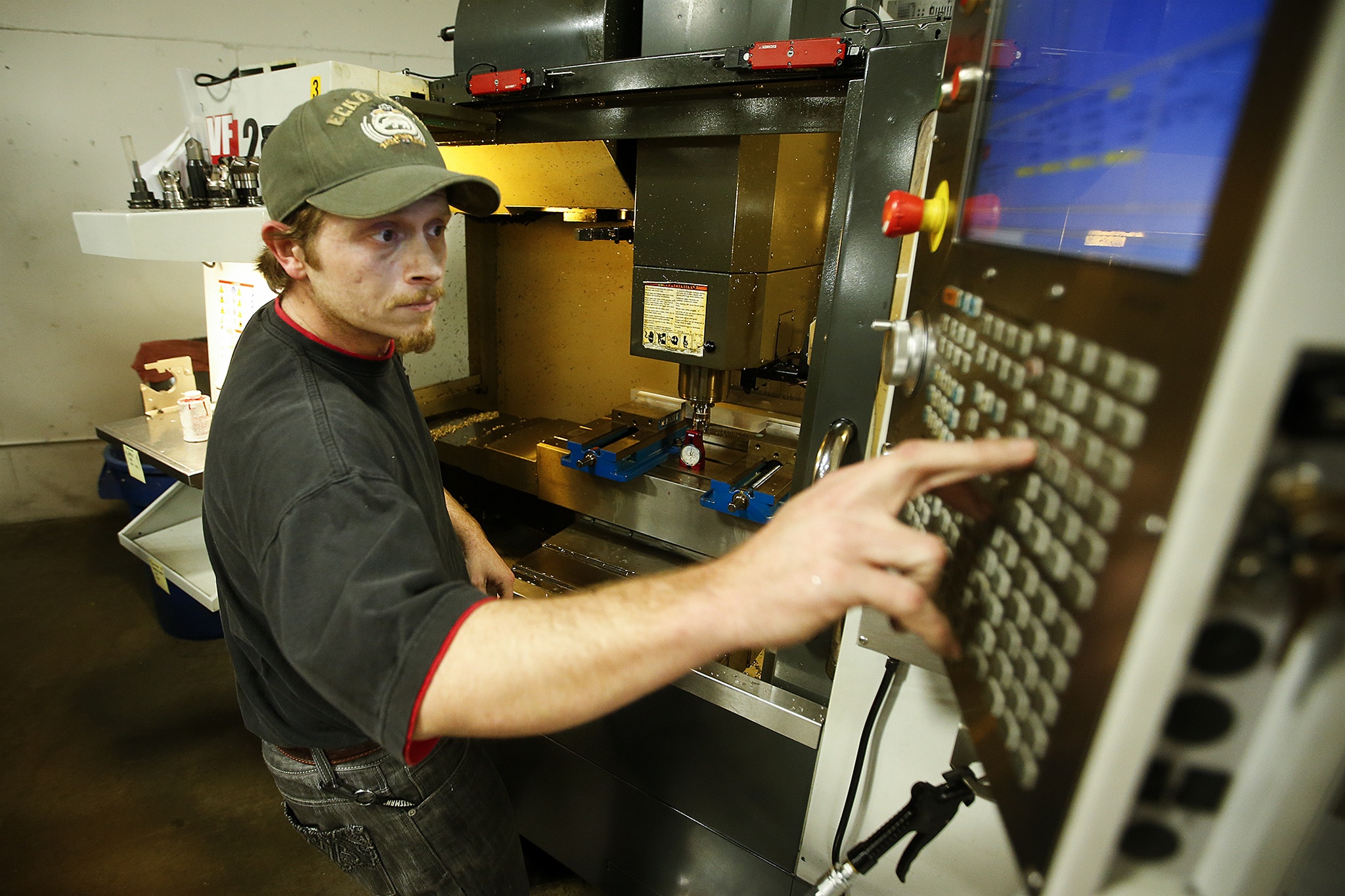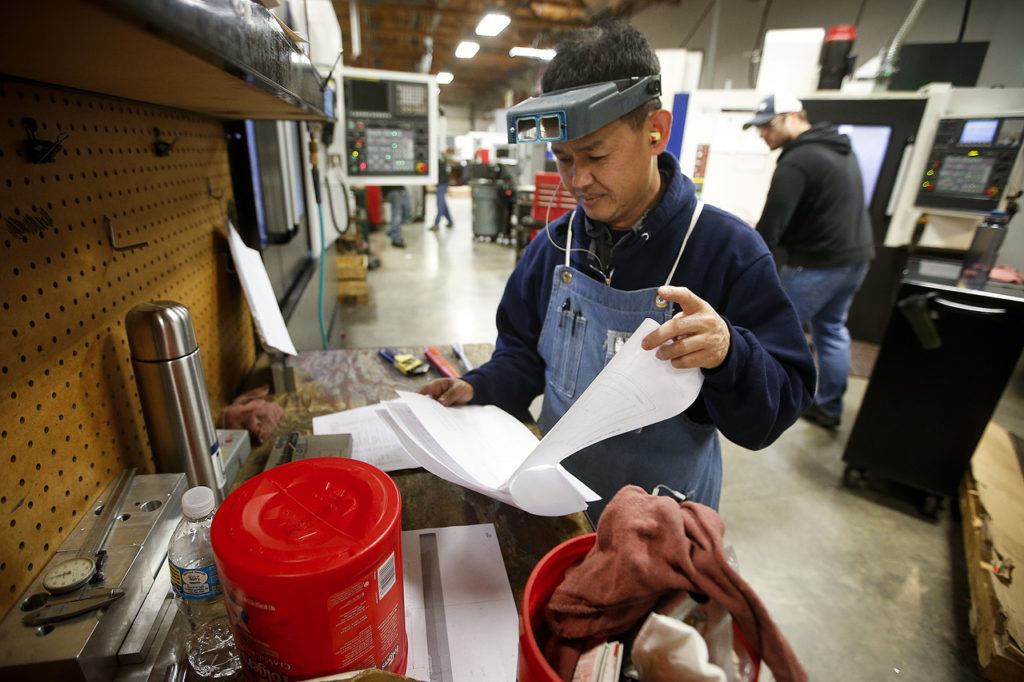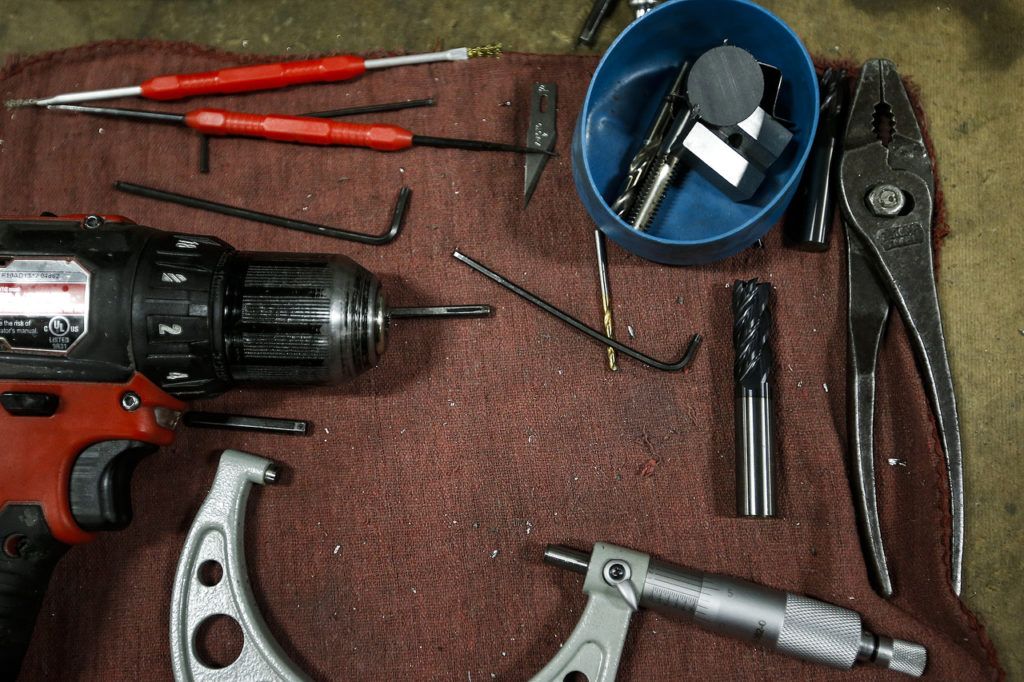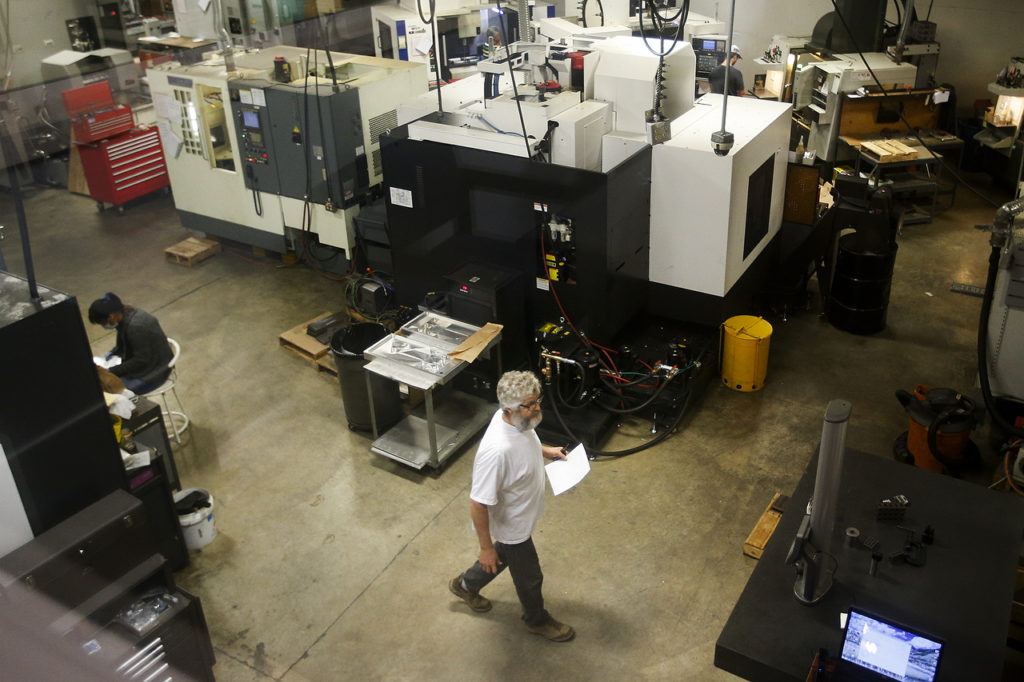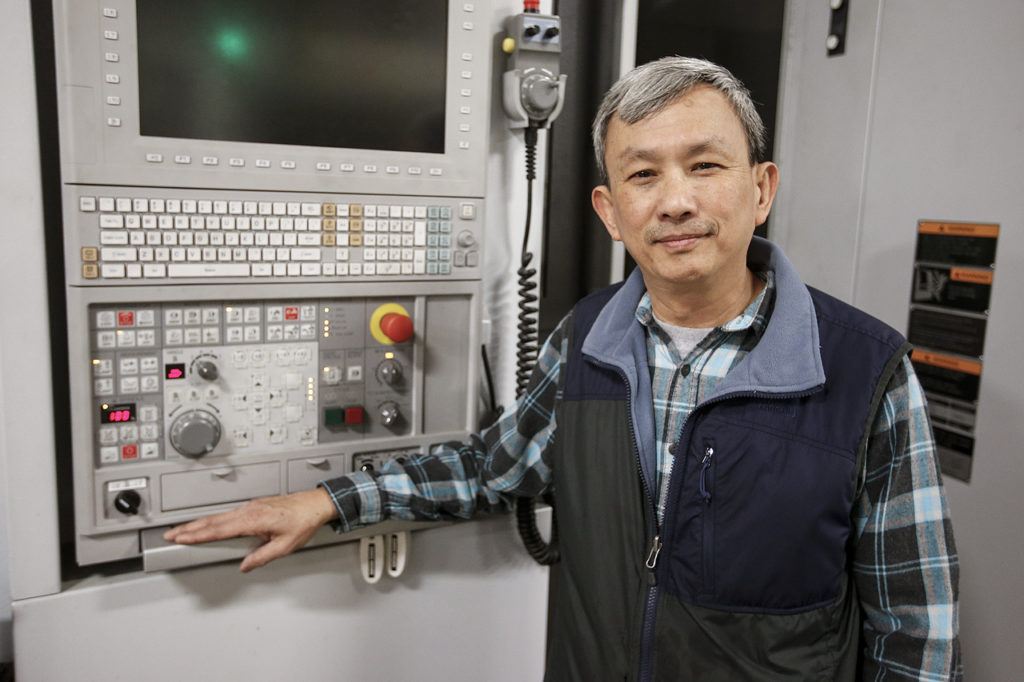EVERETT — Throw a brick in Snohomish County, and you might hit a machine shop.
Well, not really, but the area has a depth of precision machine shops that few manufacturing centers can match. The shops use sophisticated computer-controlled machines to trim, carve and cut metal blocks into complex parts for airplanes, production equipment and other high-value goods.
In recent years, a wave of mergers and acquisitions have whittled down the number of shops. Smaller machine shops are hustling to keep ahead of the pressures driving consolidation and greater competition from overseas.
Shops range in size from a couple of guys in a garage to cavernous plants with dozens, even hundreds of machines, known as computer numeric control (CNC) machines.
Many smaller shops here have carved out niches based on their expertise. That is what Binh Mach has done since buying RB Enterprises in Mukilteo in 2008. He focuses on making extremely complex parts in small batches, rather than big production runs making the same part for several years.
“I can compete because of my knowledge, my skill and I’m a workaholic,” Mach said.
Nearly all of RB Enterprises’ customers are in Snohomish or King counties, including the Boeing Co. Being close makes it easier to quickly turn around orders.
“I can make one, drive to the customer, see if the part works” in the real world, “and come back to make any changes” the same day, he said.
His business’ biggest constraint is finding enough skilled workers. He has about 30 employees and 19 machines. Sometimes, “I list an opening for months” before finding someone to permanently fill it, Mach said.
Small shops like his face the risk of bigger companies with fatter payrolls poaching his trained workers.
Job-training programs at Everett Community College and other schools around the state have expanded in recent years, but they still fall short of meeting the aerospace industry’s needs.
Technically, it only takes a few months to learn how to operate a CNC machine, but running it efficiently requires many months, even years on the job, turning out real parts for real customers — who don’t pay for defective or delayed products.
Customers tell a machine shop what a part should look like, but not how to make it. Figuring that out is up to the supplier, and learning how to turn a hunk of metal into a deliverable part as quickly and efficiently as possible requires years of experience. After that process is mapped out, the steps are programmed into a CNC machine, which follows the instructions like a dancer following choreography.
California, Kansas and New York also have strong machining sectors serving aerospace. The biggest concentration is in Southern California and has been declining for decades, a symptom of the state’s waning aerospace sector. The number of small machine shops with 10 to 30 employees in that state has dropped by 50 percent over the past 30 years, said Tom Captain, who leads aerospace and defense sector coverage at Deloitte, a consulting firm.
Some have gone out of business, others have been bought by larger companies, he said.
The trend toward consolidation largely is driven by two factors: first, the high investment costs required to stay competitive, and second, the high labor costs in the U.S. market. That second factor also is driving an increase in automation in machine shops, Captain said.
Tom Brosius, vice president and general manager at Orion Industries, has seen the competition in places such as Indonesia, Morocco and Mexico get much better in recent years. “Every year, the capabilities of those international competitors improve.”
Orion Industries is not like most aerospace suppliers. It is a nonprofit group with a social mission — helping people with disadvantages in the job market get started on a career. Most of the disadvantages are physical, such as deafness, or developmental delays.
Regardless of the mission, the company still has to competitively bid for its work. Its facilities in Auburn and Mukilteo make parts on every Boeing commercial and military aircraft.
Its Auburn machine shop mostly puts out production parts. However, it also does rush spares for Boeing when an airplane is stuck on the ground with a broken part, a situation known in the industry by the acronym AOG — aircraft on ground. In those cases, a supplier has to bump the work it is currently doing to quickly turn out the needed component.
“Nobody’s ever OK with us slipping another part for an AOG part,” Brosius said.
It requires resetting CNC machines to do the rush work and then again for the order that was interrupted. “It can easily take up to a day” to do that, he said. “We have to make it up with overtime and on the weekends.”
Puget Sound “is not a low-cost environment, so we have to be particularly efficient to compete,” he said.
The aerospace industry in recent years has been laser-focused on driving costs down. “Now, cost is king,” Brosius said.
That emphasis ripples through the supply chain, affecting the companies making and distributing CNC machines, said Dan Domine, a salesman for Ellison Technologies, one of the biggest distributors of CNC machines in the U.S. “What it means to us is we have to reduce our prices” or cut costs elsewhere.
“Boeing is the elephant in the room,” but “everyone wants to work with Boeing because it can put a lot of people to work,” he said.
A machine can cost anywhere from just under $50,000 to millions of dollars, said Domine, who has been with Ellison Technologies for 30 years.
His customers include big companies and small shops with a handful of machines that pick up the aerospace supply chain’s crumbs. But what are crumbs to first-string suppliers are enough for small shops to live off.
Boeing Commercial Airplanes (BCA) deals directly with about 200 precision machine shops, including about 50 in the Puget Sound region, said Gary Koessler, director of parts and assemblies at BCA.
Most of the local shops range in size from 20 to 300 employees, and do serial production — making the same part for years at a time.
Consolidation affects Boeing, mostly by making contract talks more complex, he said.
The company keeps an eye on mergers and acquisitions to avoid any constraints in the supply chain.
He does not expect precision machine shops will have any trouble keeping up as Boeing and Airbus execute plans to churn out more airplanes in coming years.
“We still have a lot of suppliers that have open capacity” in their machine shops, Koessler said. “I get calls every week from suppliers” about adding work.
Dan Catchpole: 425-339-3454; dcatchpole@heraldnet.com. Twitter: @dcatchpole.
Talk to us
> Give us your news tips.
> Send us a letter to the editor.
> More Herald contact information.
